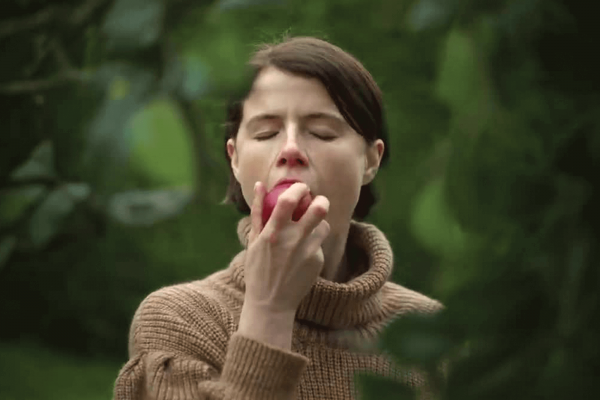WHEN REVIEWING FILMS, especially from a faith-based angle, it’s natural to look for concrete messages. Most mainstream films tell three-act stories, and those typically include a tidy resolution that presents a perspective or moral. But film is also an art form, and great art is more interested in creating atmosphere and asking questions than providing answers—not unlike faith, which teaches us to pose unanswerable questions and to sit with uncertainty.
For those who like tidy narratives, filmmaker Alex Garland’s work can be frustrating. Garland’s films are concerned with big concepts, many related to the characters’ desire for control at the expense of their humanity and others’ lives. However, his films rarely answer the questions they pose, leaving room for viewer interpretation. For audiences willing to engage with art that lives in an in-between place, this can be a thrilling, sometimes visceral, experience.
Garland’s latest film, Men, is his most tonally upsetting and his most abstruse. In it, Harper (Jessie Buckley) rents a country manor as a space to emotionally recover from the violent death—a possible suicide—of her husband, James (Paapa Essiedu). Her idyllic solitude is disrupted by a series of men (all played by Rory Kinnear) who threaten her emotionally, psychologically, and physically. The men appear in various forms, including a patronizing older man, a vulgar child, a manipulative vicar, a macho policeman, and a naked, silent stalker.
The concept itself is clear; Men is about the act of male intrusion on the lives of women. But it’s the way the movie communicates the theme that creates questions Garland would rather ask than answer. Men is awash in religious imagery, both biblical and pagan, from Harper eating an apple from the garden on her arrival to the repeated motif of the Green Man (a common image in British folklore) throughout the village where she stays. For the most part, these images are meant to evoke a sense of something primal and punishing.
That tone gives Men its effect, generating an uncomfortable emotional echo of the fear many women feel in a patriarchal society. There is no truly safe place for Harper, no emotional refuge that can’t be weaponized against her. It’s not enough, of course, to state that a problem exists when half the world’s population is intimately aware of it. It is, however, undeniably powerful to create a sense of fear and make the audience sit in ambiguity that resembles real life. Right now, our lives seem to be all about sitting with painful, tangled questions. It makes sense that our art should be, too.

Got something to say about what you're reading? We value your feedback!







